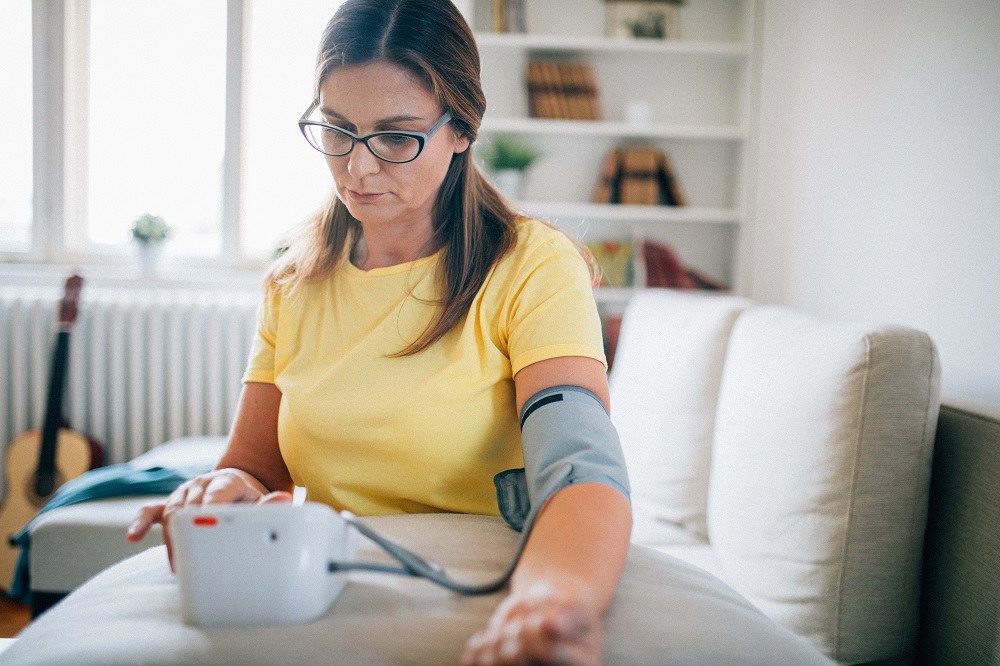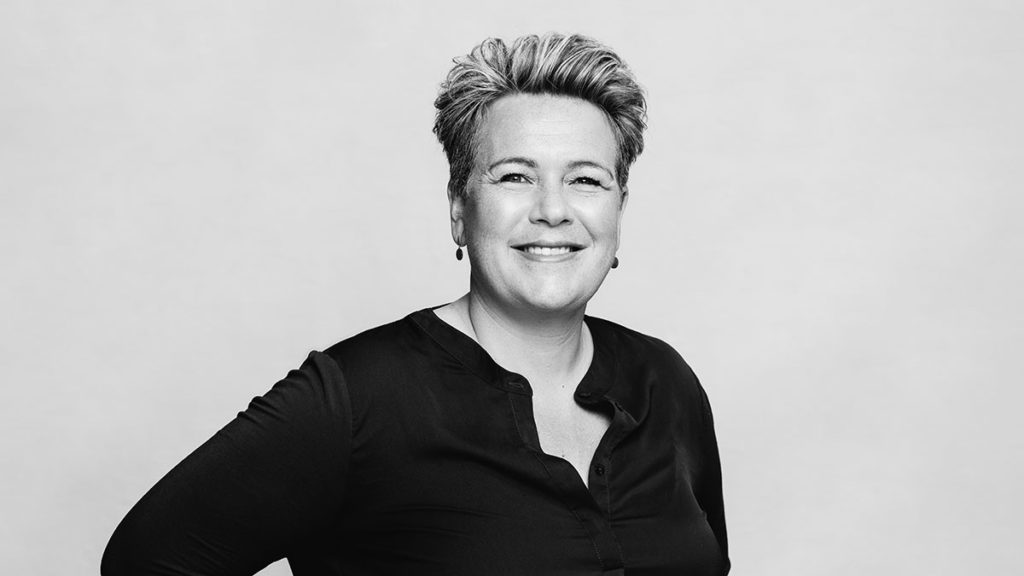
Photo: Shutterstock
Inven2 hopes that we can shortly start so-called virtual clinical trials initiated by the industry in Norway. Virtual clinical trials involve the use of digital tools to collect the necessary data for getting a drug approved. Oslo University Hospital and the pharmaceutical company Bristol Myers Squibb (BMS) are very positive to virtual trials.
‘We have all the prerequisites for conducting successful virtual trials, and it could be a major advantage in attracting more clinical trials to Norway,’ says Siri Kolle. She holds the position of VP Clinical Trials at Inven2.
Virtual trials, also called ‘decentralised clinical trials’, involve the use of digital tools and remote follow-up of participants, among other things.
In Sweden, the Swedish Medical Products Agency is currently mapping the processes, etc. that are required for conducting virtual clinical trials safely and effectively in addition to what is already in place.
Jenny Söderberg is the project manager, and she pointed out in a press release that almost 70% of potential clinical trial participants are excluded for geographical reasons.
‘I imagine that the same applies to Norway. This shows the enormous potential that virtual trials have for improved patient participation. Virtual trials could mean better, broader and faster recruitment for a trial, which is the most important thing for the companies and the patients,’ says Kolle.

Siri Kolle is responsible for clinical trials in Inven2. Photo: Inven2 / Moment Studio.
Pharmaceutical industry focuses on new digital solutions in trials
Kolle thinks that the Swedish pilot project is exciting and is keenly following it and other initiatives related to virtual trials. She and her colleagues at Inven2 have already gathered information about the process at Oslo University Hospital based on inquiries from pharmaceutical companies at the start of 2020 about what can currently be done in relation to virtual studies in Norway.
‘It is allready possible to use videos for patient consultations and electronic consent. In addition, we have sent several large pharmaceutical companies the requirement specifications that Oslo University Hospital has for the use of information systems within the hospital, so they are aware of the hospital guidelines on this,’ says Kolle.
Susanne Hedenstedt appreciates this. She is the senior clinical site manager in the Nordic countries at the biopharma company, BMS, where she is also part of an internal, global, virtual clinical trials task force.
‘There is a global explosion taking place within virtual trials. Many pharmaceutical companies are considering the possibility of conducting all or parts of their trials digitally. BMS is planning to start a virtual cancer follow-up trial during 2020, and we hope to have a Norwegian hospital involved in this,’ says Hedenstedt.
Hedenstedt points out that BMS would like to start conducting virtual clinical trials, and she thinks that it could be a game changer for patients and for the development of new treatments, at least for some disorders.
‘Patient recruitment is one of the biggest challenges in clinical trials. It takes ages and delays the entire process of getting a new treatment approved. Furthermore, it happens quite often that some of the patients do not complete the entire trial period, which could be due to their disease or other factors like travel. Travelling back and forth to the hospital carrying out the trial is difficult for very ill patients. With virtual trials, we can involve the patient in a more suitable manner in their own home,’ says Hedenstedt.
The coronavirus pandemic has expedited work on virtual trials at BMS. The global state of emergency has meant that BMS, like many other pharmaceutical companies, has temporarily postponed starting new trials and recruiting patients for ongoing clinical trials.
‘We have taken these proactive measures to protect and ensure the safety of trial participants, our employees and hospital staff who are involved in clinical trials,’ says Hedenstedt.
She added that trials were also postponed to ensure that they were conducted in line with regulatory guidelines so that the scientific quality of the data remains high.
‘The coronavirus pandemic is going to lead to an explosion of virtual trials. It’s very positive that Inven2 wants to contribute to their introduction in Norway,’ says Hedenstedt.
Oslo University Hospital is positive to virtual trials
So what is actually the biggest difference between a standard clinical trial and a virtual, decentralised clinical trial?
The word decentralised spells it out; the main difference is that, as far as possible, the trial follow-up is moved from the hospital setting to the patient’s home. The patient has blood tests done at their GP’s surgery, and then uses various digital solutions to report data during the trial. More high-tech investigations like MRI scans, PET scans and X-rays will still have to be done at the hospital.
In Norway, the term telemedicine is often used about this type of patient follow-up.
Due to beeing a country with large distances, and many people in large parts of the country living far from hospitals or their GP, the use of telemedicine in Norway is more developed and advanced than in many other countries.
‘The Norwegian health service’s extensive experience of telemedicine means that we have all the prerequisites for being a pioneering country in the field of virtual trials,’ says Kolle.
A few more elements need to be put in place before we can progress from employing telemedicine to being able to conduct virtual clinical trials.
‘Electronic consent from patients to participate in a trial is one element, video consultations with a doctor or the trial personnel is another and there is also the extensive collection of patient-reported data. The latter involves the patient reporting on their physical and mental health based on their experience and health data obtained from different ‘wearables’, e.g. a heart monitor or similar that measures blood pressure and other vital functions,’ says Kolle.
These three elements are all currently used in the health service,’ says Peder Utne. He is head of the Department for Research Administration at Oslo University Hospital.
‘Digital tools are increasingly being used in researcher-initiated trials, and there is nothing preventing their use in industry-sponsored trials either. Naturally, data security has to be in place, i.e. that the digital solutions are safe for the participants to use and in line with international guidelines on data protection,’ says Utne.
An example of an ongoing virtual trial in Norway is a coronavirus trial called koronastudien, in which Oslo University Hospital is studying the risk of becoming infected with the coronavirus. Both electronic consent and questionnaires for collecting self-reported data are being used. So far, more than 100,000 people are participating in the trial.
‘We see virtual clinical trials as something very positive. Overall, I think most things are in place for conducting virtual trials. There will be some challenges depending on the design of the individual trial. This may apply to the specific systems that will be used for collecting data, as well as challenges connected with data protection and data security and also how amendments in a virtual trial should be reported to the Regional Committee for Medical and Health Research Ethics (REC), which is responsible for approving the trial,’ says Utne.
He thinks the coronavirus pandemic could be the single event that sparks a major digital boost within the healthcare sector.
‘In many ways, the pharmaceutical industry has been too traditional in its approach to conducting clinical trials, so it’s going to be exciting to see how thing progress from here,’ says Utne.
Coronavirus accelerates the use of digital tools

Illustration photo of the coronavirus. Photo: Shutterstock.
The coronavirus pandemic has led to the extensive adoption of video consultations in Norwegian hospitals. Several of the country’s leading oncologists expressed this view at a webinar that the Dagens Medisin newspaper arranged in March about how the coronavirus pandemic has affected cancer treatment in Norway.
‘The pandemic has forced us all to rethink the way we do things and how we use digital tools. Look at the education sector and how teachers suddenly had to start teaching using video solutions, etc. The same thing happened in the healthcare sector. Healthcare professionals had to adapt overnight to, for example, some patients not wanting to go to hospital for fear of contracting the virus during the transport or in the hospital, and other patients who could not be exposed to such a risk. In some cases, a video consultation with a patient is easier and more effective for the patient as well as the healthcare provider,’ says Kolle.
She thinks that Norway should use the digital momentum that the coronavirus pandemic has created to change its practice in relation to clinical trials and, as far as possible, conduct them digitally in the future.
Since mid-March when the major hospitals were all at a ‘yellow’ level of emergency preparedness, the coronavirus pandemic affected the way ongoing trials were being conducted and particularly the start-up of new clinical trials in Norway. During a global healthcare crisis like we are currently experiencing, digital tools are invaluable for conducting clinical trials as normal despite the state of emergency; this is best for the patients,’ says Kolle.
Hospitals in Norway report they are now resuming trials that had been in progress and also starting new ones. In general, this is not the case globally. Clinical trials have been delayed, particularly in countries like Italy, Spain, the UK and the US that have been badly affected by the coronavirus pandemic.
‘There are many advantages to adopting virtual trials, so we’ve got to make this work. We’ve also got to realise that if we want to attract more clinical trials to Norway in the future, it’s essential that we are part of this development and adopt the use of new tools,’ says Kolle.
In the new action plan for clinical trials that the Ministry of Health and Care Services is currently working on, she has, on behalf of Inven2, emphasised the necessity of focusing on virtual clinical trials.
The coronavirus pandemic has led to changes in the way that clinical trials are conducted and highlighted issues and solutions related to digital clinical trials; see also https://www.dagensmedisin.no/artikler/2020/05/20/har-pandemien-endret-premissene-for-kliniske-studier-i-norge/ (in Norwegian only).



 Norsk
Norsk